A Guide to Competitive Gaming
E-Sports or Electronic Sports has been one of the most developing sports in the world. It refers to organised video game competitions. Here individuals or teams compete against each other in various game genres. The sport began as casual arcade gaming in the 1970s. Since then it has evolved into a global phenomenon with professional leagues, massive audiences, and multimillion-dollar prize pools. There are online tournaments across the world and it has some amount of prize money.
With so much mainstream media coverage of the video gaming industry these days, you’ve almost certainly heard the phrase. In reality, more than 380 million people worldwide follow esports, both online and in person. Previously people used to play Space Invaders for the highest score. People would become local heroes by beating the high scores on such ancient arcade games. After a while, the popularity of PC gaming got its height. The individuals began playing arcade games against strangers.
It can be regarded as the start of the esports era. The 2016 global championships of the popular esports game League of Legends (43 million viewers) drew more attention than the NBA championships Game 7 (31 million viewers). With its fragmented landscape and digital platform, the esports sector provides promise for a plethora of revenue streams. But, if you’re wondering exactly what esports are, we’ve got you covered.
Tracing the Rise of eSports
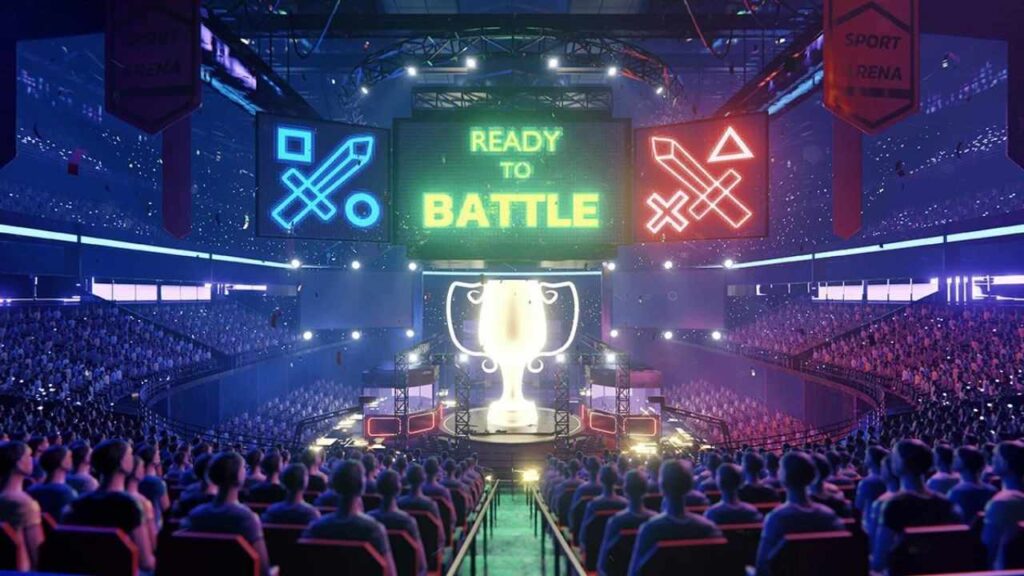
This sport traces back to the early days of video gaming. Many interactive arcade games were created in the 1950s but were not intended for commercial usage. These video games were used to test the capabilities of a certain machine. At the time, video gaming and esports did not truly exist. The first video game tournament took place in 1972 at Stanford University. The students competed in the game named Spacewar. Coming to the 1990s games like StarCraft and Counter-Strike.
They laid the groundwork for professional gaming. The advent of high-speed internet made online multiplayer games more accessible. This allowed players from around the world to compete. During the early 2000s, eSports started gaining popularity in foreign countries. Games like Warcraft III and Dota set the stage for team-based, strategy-driven gameplay. These games started capturing the attention of young kids and they became worldwide popular.
Back in 2011, Dota 2’s International tournament offered a $1.6 million prize pool. Since then eSports has continued to grow, with professional leagues forming around popular games and attracting millions of viewers worldwide. We have covered the history and the rise next we take a look at how to participate in the eSports tournament and league.
First steps into the competitive eSports arena
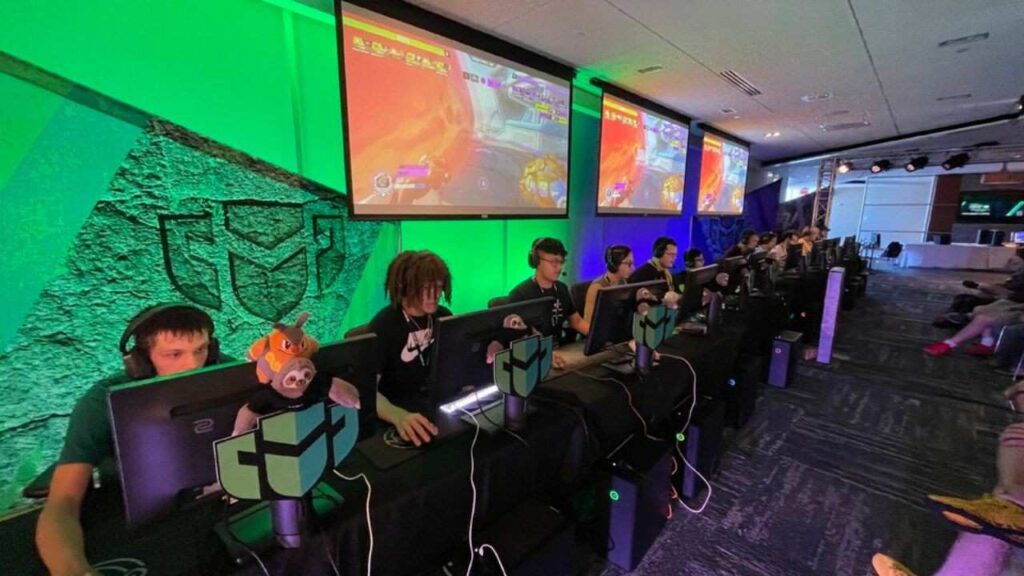
eSports refers to competitive gaming at a professional level. However, it encompasses much more than just players sitting in front of screens. The games are ranked modes and playlists gamers can jump into via the game itself. There will be matchmaking with others online, and often but not always. This mode will have slightly different regulations than the ordinary game, such as timer limits.
However, gamers mostly play the games they are already familiar with. Once the gamer has got to the place where they are consistently winning in rated play. They would probably be ready to take the next level. This is where each game differs, as titles with first-party esports support from the developer will provide a simple way to compete, such as Fortnite’s in-game tournament system.
Other games, such as Call of Duty and Rocket League, will rely on third-party platforms like Gamebattles, ESL, or FACEIT to deliver esports services. All three operate in similar ways, offering leagues and tournaments for players to compete in. There are some differences in how each one works, but the basic idea is that you may attach your online ID, whether it’s PSN, Xbox Live, or one of the various PC services.
From there, the gamers may sign up for leagues and look for competitive matches. Apart from this, there are a variety of game genres that dominate the eSports landscape. Do you play any of these above-mentioned games or the ones that will follow next? Let us know in the comments.
Popular eSports Games
6. Sports Simulations
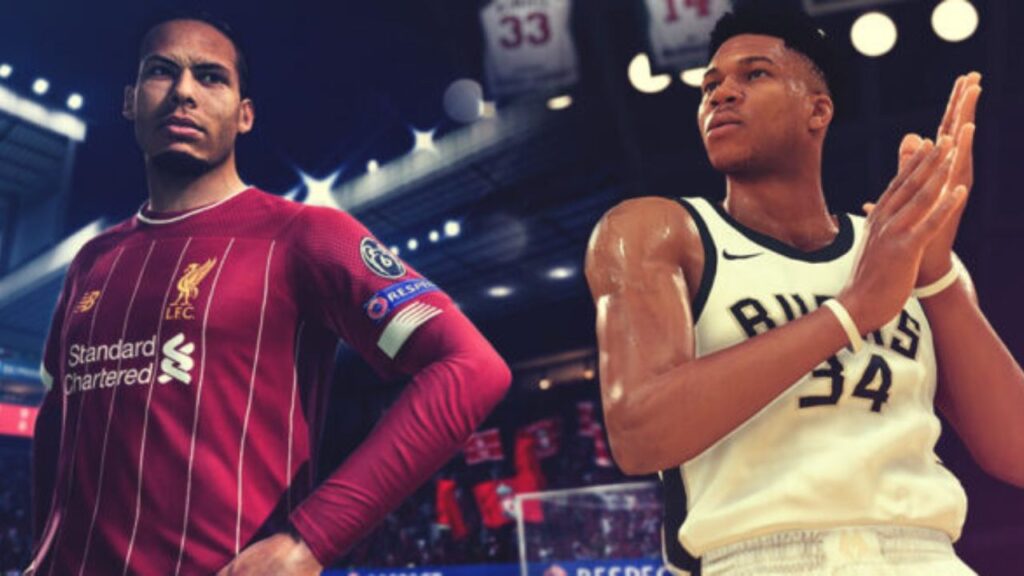
Games like FIFA and NBA 2K simulate real-life sports. It has professional leagues mirroring their traditional counterparts.
5. Fighting Games

These games are Street Fighter, Super Smash Bros., and Tekken. These are 1v1 competitions that test reflexes, strategy, and execution.
4. Battle Royale

Fortnite and PUBG are the games that have gained massive popularity. Players or teams battle on a large, shrinking map, with the last one standing being the winner.
3. Real-Time Strategy (RTS)

These games are StarCraft II. It focuses on resource management, strategy, and real-time decision-making to defeat the opponent.
2. First-Person Shooters (FPS)

In games like Counter-Strike: Global Offensive (CS), Call of Duty, and Overwatch, players engage in fast-paced, team-based shooting methods.
1. Multiplayer Online Battle Arenas (MOBA)
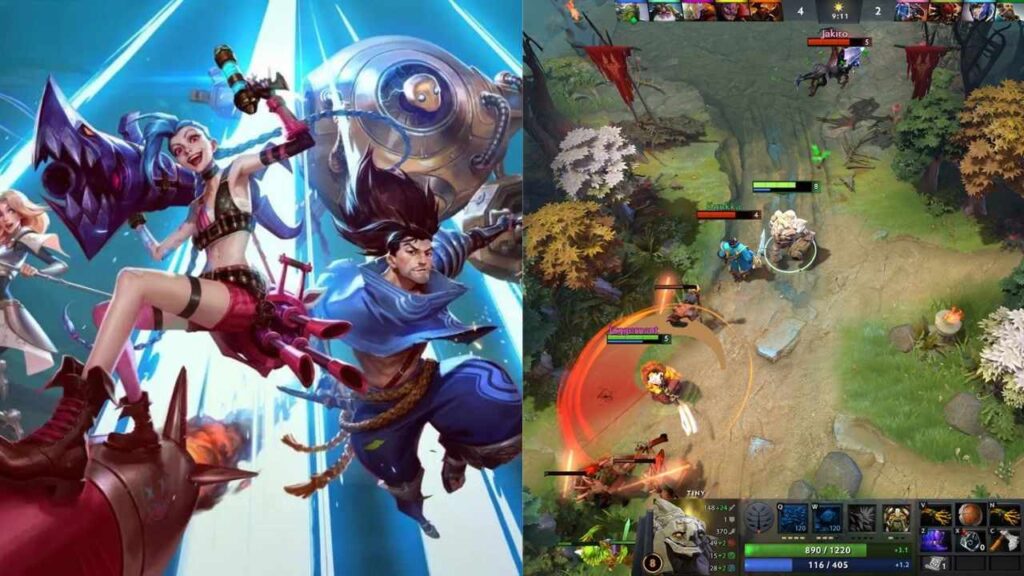
These games are League of Legends (LoL) and Dota 2 are team-based games where players control individual characters with unique abilities. The goal is to destroy the opposing team’s base.
As per these games are concerned they have different tournaments that are the pinnacle of competitive gaming. It also provides prize pools that can reach millions of dollars. Have you ever played these games or want to play?
Major eSports Tournaments and Leagues
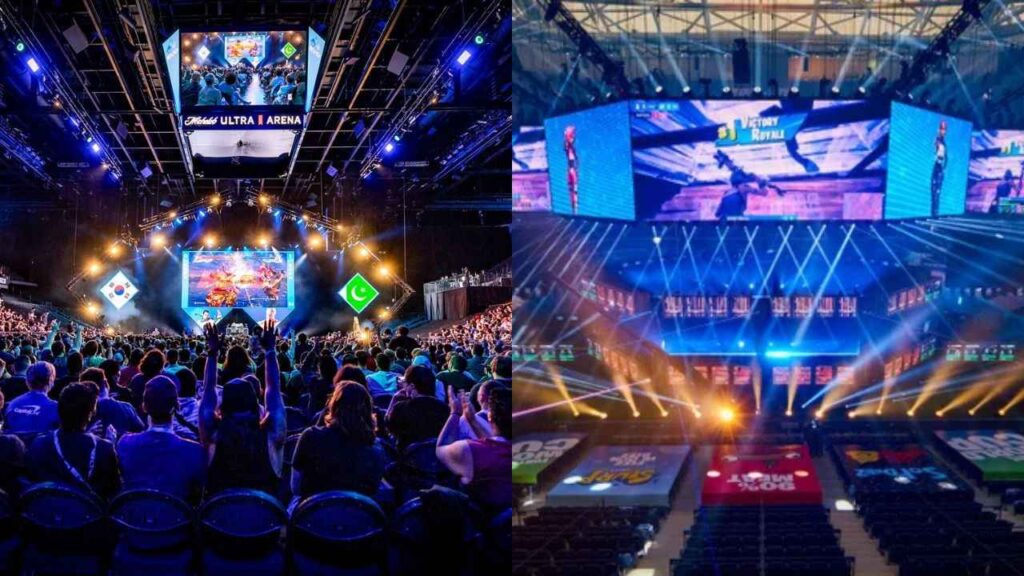
The International (Dota 2)
This competition is known for its large prize pool. It brings together the top Dota 2 teams from around the world.
League of Legends World Championship
One of the world’s largest eSports events, this competition features League of Legends’ top teams.
Counter-Strike
Majors
These are the most competitive Counter-Strike competitions, featuring top teams from around the world.
Fortnite World Cup
Fortnite’s global competition includes both individual and team-based events, with big prize pools for the top finishers.
EVO (Evolution Championship Series)
It is the ultimate fighting game competition, bringing together elite players from games such as Street Fighter and Super Smash Bros.
These games are gaining popularity day by day. It is a growing industry and the global eSports revenues are expected to surpass 1 billion dollars, driven by advertising, sponsorships, media rights, and merchandise. Nowadays brands invest heavily in eSports, sponsoring events, teams, and even individual players.
Media also are taking broadcasting rights for major eSports tournaments sold to streaming platforms and television networks, similar to traditional sports. It has a bright future ahead and it will also be included in the Olympics as the talks are in place.
Shaping the next generation of competitive gaming

The future of the eSports is bright. Being a booming industry with continued growth in viewership, prize money, and mainstream acceptance. The traditional sports organisations invest in eSports, the two sectors will undoubtedly become stronger together. eSports is also pushing for inclusion in events such as the Olympics, which may help legitimise competitive gaming as a sport.
Furthermore, technological advancements such as virtual reality (VR) and augmented reality (AR) have the potential to alter how eSports are played and seen. These technologies may enable more immersive and interactive experiences for both players and spectators. This will catch the new generation of children and will attract them to play more games as they will also feel there is a career to it.
The participation of eSports in major multi-sport events such as the Asian Games demonstrates their growing acceptability. Professional leagues, college programs, and youth academies will formalise competitive gaming, influencing the next generation of eSports players.
esports is the ultimate game changer

eSports continues to break the traditional barriers and redefine competitive entertainment. Its influences will only have to move forward from here. From fostering inclusivity to creating global stars, eSports has proven to be a powerful cultural force. The future presents endless possibilities as technology, fan involvement, and sponsorship advancement.
With its growing popularity and acceptability, eSports is more than just a fad it represents the next generation of sports. As players, teams, and fans accept this transformation, the future of eSports appears unstoppable, combining gaming and sports into a single fascinating arena.
Also Read: Explore our sports categories
Also Read: Diego Forlan’s surprising decision to compete in tennis
Also Read: Boxing updates and news


